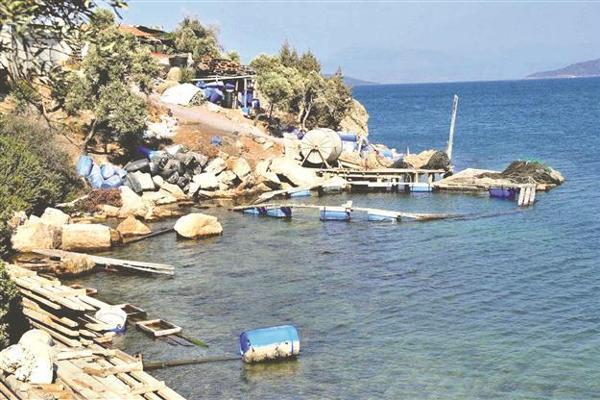Sustainable tourism is future trend: TÜSİAD
ISTANBUL - Anatolia News Agency


The Mediterranean, which includes the Turkish coastline, runs the risk of being completely polluted in 100 years, says TÜSİAD Chairwoman Ümit Boyner. Hürriyet photo
A large portion of Turkey’s tourism sector is found along its coastline and without a sustainable tourism model to protect the country’s natural environments, Turkey is jeopardizing its future for tourism, said the Turkish Industry and Business Association (TÜSİAD) “Sustainable Tourism” report, which was published yesterday.The report suggested that Turkey implement strategies like the United Nations Environment Program’s (UNEP) “Integrated Zone Management” project to promote sustainable urban planning and environment protection practices in order to beef up Turkey’s coastal tourism and ensure its future sustainability.
The report also stressed that architectural projects should take into account Turkey’s historical sites and should be built in accordance with the existing landscape, in order to protect Turkey’s cultural tourism.
TÜSİAD Chairwoman Ümit Boyner, who spoke at the unveiling of the report yesterday, said the “sustainable development” was the trend of the future. She noted that if Turkey wants to achieve a five to six percent growth rate per year in the coming period, it needs to focus on finding alternative energy resources, reduce greenhouse gases and at the same time focusing on growth. As part of this effort, TÜSİAD has prepared its report on “Sustainable Tourism,” she said.
Boyner said that tourism currently accounts for 9.1 percent of the global gross domestic product (GDP) of 2012 and is a market with a turnover of $6.5 trillion, employing 260 million people.
“If we use these numbers as a base, we can see that the tourism sector is one of the propelling forces for global investment and employment. In ten years, we expect this number to reach $10 trillion, accounting for 10 percent of global GDP, employing 356 million people,” she said.
The Mediterranean, which Turkey is a part of, runs the risk of being completely polluted in 100 years and that is why all the countries that are bordering the Mediterranean need to come up with sustainability programs and a common understanding, she noted.
‘Seasonality a handicap’
Boyner also said that seasonality was one of the Turkish tourism sector’s handicaps.
“Tourism in Turkey take place during a certain period of the year and this has negative ramifications on the country’s economy and sustainability,” she said, stressing that the country needs an alternative tourism strategy and a government policy. She also explained that a future road map would require the close cooperation of the public and private sector in terms of strategic planning of sustainability efforts.
KOREA TO BOOST MUTUAL TOURISM
ISTANBUL - Anatolia News Agency
The Korea Tourism Organization (KTO) has opened a branch in Istanbul to boost tourism between Turkey and South Korea.
Speaking at the opening ceremony the director general of KTO, Lee Charm, said they had opened the branch to promote relations in terms of tourism between Turkey and South Korea. He said that to boost South Korea’s tourism sector, they had chosen Turkey.
“Our target is to bring 40,000 Turkish tourists to South Korea,” said Charm, adding that tourism between Turkey and South Korea was constantly developing. Last year, the number of South Koreans visiting Turkey was up 21.5 percent to 170,000 South Koreans. At the same time, the number of Turks visiting South Korea increased 6.6 percent to 17,000.
“There are 10 times more tourists from South Korea coming to Turkey. I believe that this number will increase in line with the economic development of both countries,” he added. Charm said KTO’s number of branches had reached 32 in 20 countries.
